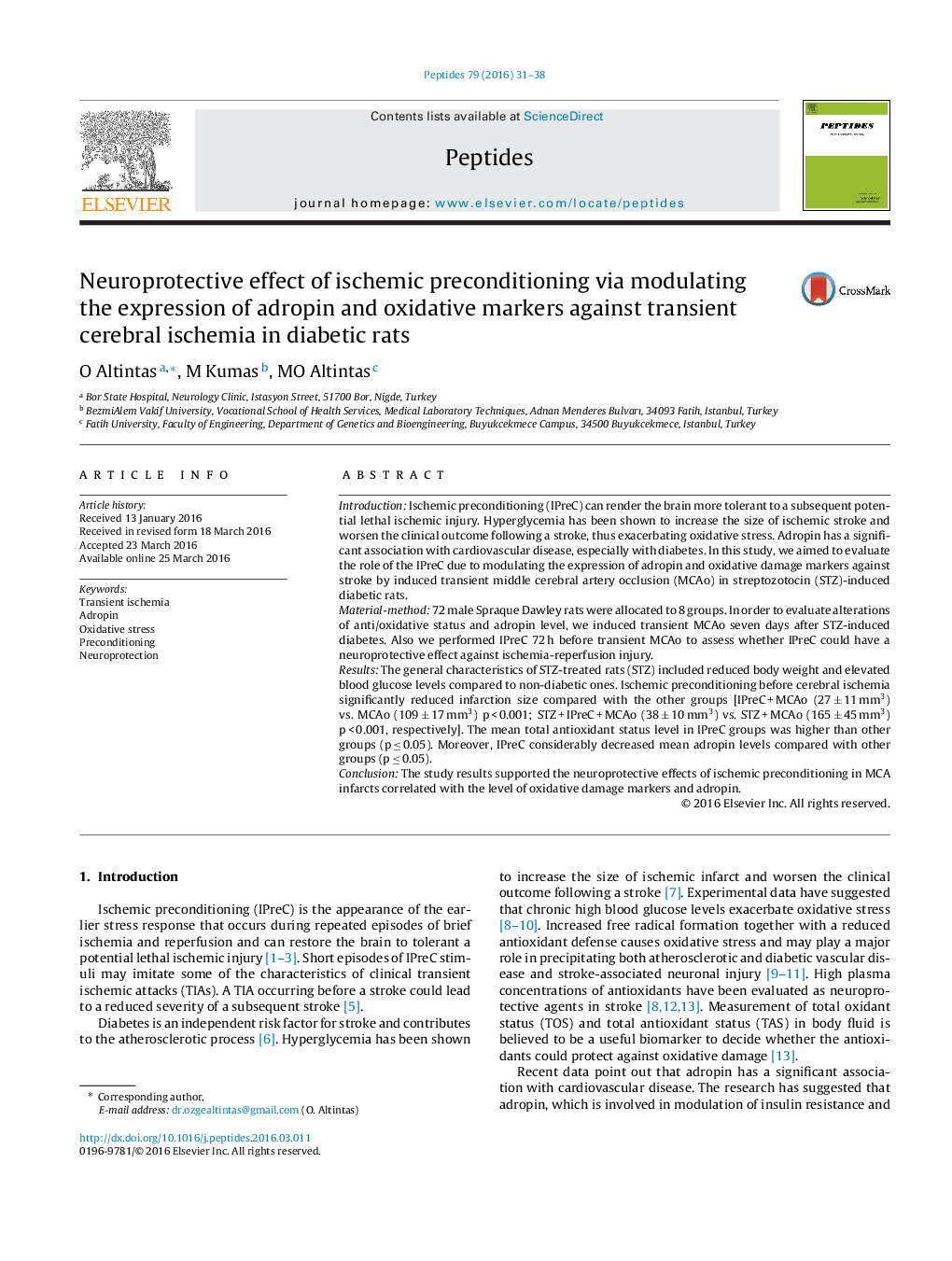| Article ID | Journal | Published Year | Pages | File Type |
|---|---|---|---|---|
| 2005873 | Peptides | 2016 | 8 Pages |
•Ischemic preconditioning protected the brain against focal ischemia.•Ischemic preconditioning enhanced the activities of antioxidant systems.•Ischemic preconditioning before cerebral ischemia reduced infarction size.•Increased adropin inside the tissue after ischemia could provide neuroprotection.•Increased adropin could be a novel biomarker to rule out ischemic stroke insult.
IntroductionIschemic preconditioning (IPreC) can render the brain more tolerant to a subsequent potential lethal ischemic injury. Hyperglycemia has been shown to increase the size of ischemic stroke and worsen the clinical outcome following a stroke, thus exacerbating oxidative stress. Adropin has a significant association with cardiovascular disease, especially with diabetes. In this study, we aimed to evaluate the role of the IPreC due to modulating the expression of adropin and oxidative damage markers against stroke by induced transient middle cerebral artery occlusion (MCAo) in streptozotocin (STZ)-induced diabetic rats.Material-method72 male Spraque Dawley rats were allocated to 8 groups. In order to evaluate alterations of anti/oxidative status and adropin level, we induced transient MCAo seven days after STZ-induced diabetes. Also we performed IPreC 72 h before transient MCAo to assess whether IPreC could have a neuroprotective effect against ischemia-reperfusion injury.ResultsThe general characteristics of STZ-treated rats (STZ) included reduced body weight and elevated blood glucose levels compared to non-diabetic ones. Ischemic preconditioning before cerebral ischemia significantly reduced infarction size compared with the other groups [IPreC + MCAo (27 ± 11 mm3) vs. MCAo (109 ± 17 mm3) p < 0.001; STZ + IPreC + MCAo (38 ± 10 mm3) vs. STZ + MCAo (165 ± 45 mm3) p < 0.001, respectively]. The mean total antioxidant status level in IPreC groups was higher than other groups (p ≤ 0.05). Moreover, IPreC considerably decreased mean adropin levels compared with other groups (p ≤ 0.05).ConclusionThe study results supported the neuroprotective effects of ischemic preconditioning in MCA infarcts correlated with the level of oxidative damage markers and adropin.
